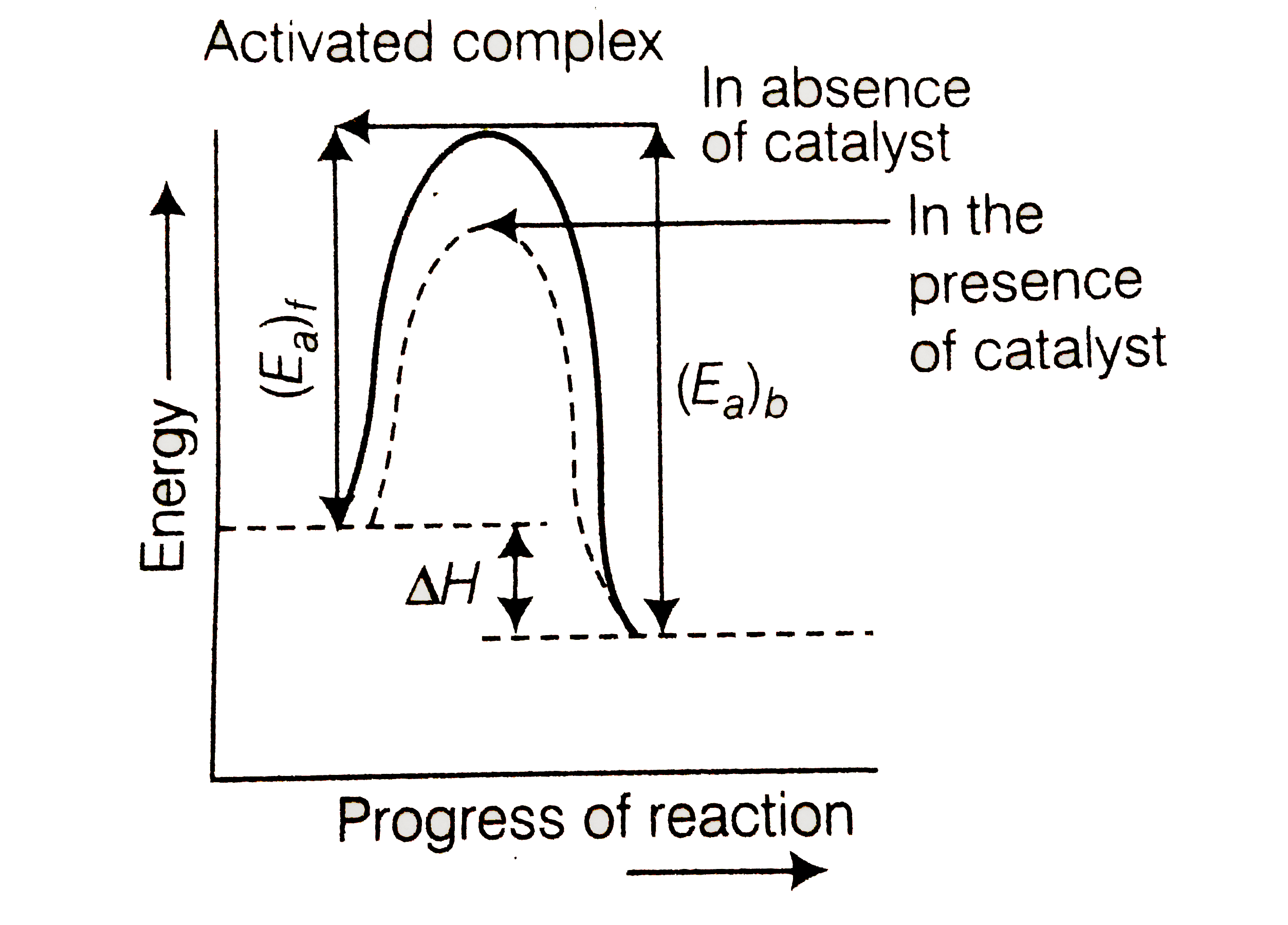Describe how does the enthalpy of reaction remain unchanged when a catalyst is used in the reaction?
Text Solution
The correct Answer is:N/a
A catalyst is a substance which increases the speed of a reaction without itself undergoing any chemical change.
According to "intermediate complex formation thoory" reaciants first combine with the catalyst to form an intermedieate complex which is short-lived and decomposes to form the products and regenerating the catalyst.
The intermediate formed has much lower potential energy than the intermediate complex formed between the reactants in the absence of the catalyst.
Thus the presence of catalyst lowers the potential energy barrier and the reaction follows a new alternate pathway which require less activation energy.
We know that,lower the activation energy, faster is the reaction because more reactant moleules can cross the energy barrier and changer into products .
Enthalpy,ΔH is a state functions.Enthalpy of reactions,i.e., differece in energy between reactants and product is constant,which is clear form potential energy diagram.
Potential energy diagram of catalysed reaction is given as

|
Topper's Solved these Questions
Similar Questions
Knowledge Check
A catalyst is used in a reaction to
Achange the nature of reaction productsBincrease the reaction yieldCdecrease the reaction yieldDdecrease the time required for reactionA catalyst is used in a reaction to
Achange the nature of reaction productsBIncrease the reaction yieldCdecrease the reaction yieldDdecrease the time required for reactionA catalyst is used in a reaction to
Achange the nature of reaction productsBIncrease the reaction yieldCdecrease the reaction yieldDdecrease the time required for reaction
